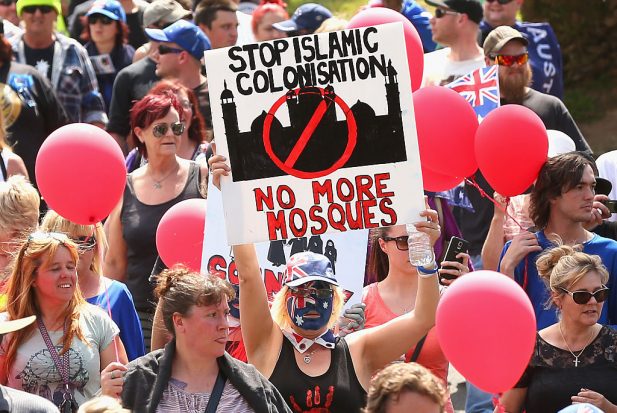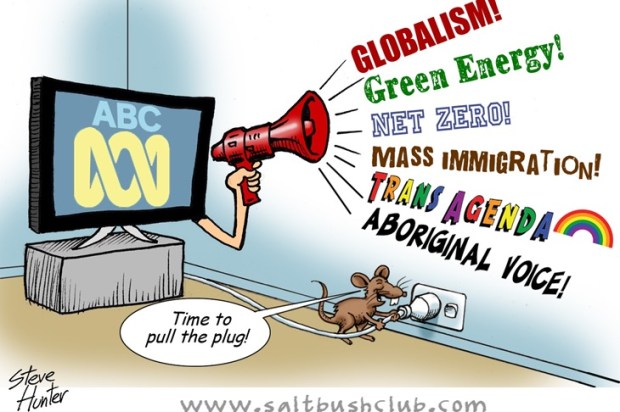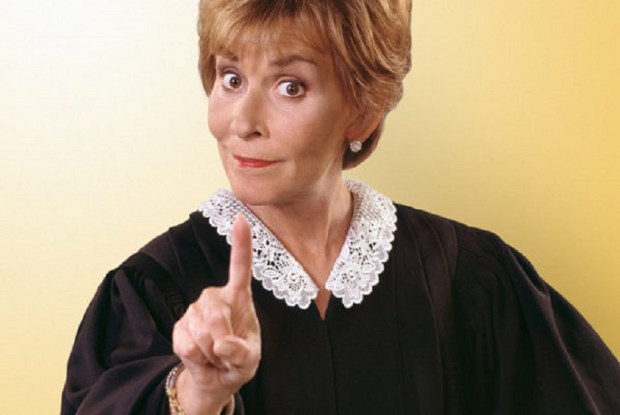 Three members of the fringe-right United Patriots Front have been charged after posting a video on Facebook depicting an alleged mock beheading in front of the Bendigo council offices. The video was filmed over a year ago and was made to protest a new mosque development in Bendigo.
Three members of the fringe-right United Patriots Front have been charged after posting a video on Facebook depicting an alleged mock beheading in front of the Bendigo council offices. The video was filmed over a year ago and was made to protest a new mosque development in Bendigo.
They face charges brought against them by the Victorian Police, including behaving in an offensive manner in public, and serious religious vilification under the Racial and Religious Tolerance Act 2001. The Act makes it illegal to act in a way that incites or encourages hatred, serious contempt, revulsion or severe ridicule against another person or group of people because of their race and/or religion.
They are due to appear in court in March and face maximum penalties of six months jail or a $6000 dollar fine.
The video shows three men beheading an effigy made of pillows that spouts fake blood, the ‘head’ is then thrown against the council chambers wall making a mockery of executions carried out by extremist Islamic group ISIS.
Nobody was verbally or physically attacked. Despite claims that charges of serious religious vilification against the three UPF members ‘sends a strong message to people that this type of behaviour is not going to be passively approved or supported or condoned’, the message it is sending may not be the intended one.
It is highly unlikely to negatively affect support for the UPF and is more likely to up the ante in the minds of their followers and turn these three protesters into martyrs and heroes of their cause. It may well increase their support base.
Evidence of this ‘blow-back’ phenomenon can be found in the Netherlands after the recent conviction of Geert Wilders, leader of the Party for Freedom and staunch campaigner against the Islamisation of the Netherlands. He is labelled in the media as ‘extreme right’ and was convicted on November 23 of hate-speech charges for ‘inciting discrimination and giving group offence’.
Since then Wilders has enjoyed a surge in polling. Before the conviction, Wilders’ PVV was polled to win 27 out of 150 seats in the Netherland’s Parliament at their coming elections in March, and now post-conviction the PVV is polled to win 36. They currently hold only 12. And this is all ‘despite’ his conviction for hate-speech crimes per the media, not ‘because of’.
Charging the UPF with offending Muslims will not serve to protect Muslims or reduce anti-Islamic sentiment in the community. If anything, it will inflame it, as UPF members and sympathisers grow resentful about the treatment of the protesters.
No matter what your thoughts are of the UPF, they deserve to be heard and they deserve to express themselves in any manner if they are not hurting anyone or damaging property. There is an implied right in the Australian Constitution to freedom of communication about government and political matters, but it is very difficult to discuss immigration, especially if you are opposed to Islamic immigration without offending some Muslims.
Defending free speech and free expression in Australia doesn’t mean agreeing with the UPF’s stance on immigration, or liking their video. It means being willing to stand up for expression that you don’t agree with, even forms of expression that some would find offensive. Defending free speech means realising that shutting speech down using ‘hate-speech’ laws generally backfires.
The best way to combat racist or xenophobic speech or expression is with more speech and expression. It means speaking out against views you don’t agree with, not shutting them down, punishing the ‘offenders’ and making heroes out of them. Censoring speech creates extremists.
If there is anything that Brexit, Trump and now Geert Wilders have taught us, it’s that telling people from on high that their opinions are wrong and ‘racist’ without engaging with their concerns backfires.
An absolutist free speech position is one that allows freedom of expression only up until the point that violence is incited, protecting everyone’s right to live free from physical attack or aggression.
In a free and open society, all forms of expression should be protected and ‘hate-speech’ laws that try but ultimately fail to protect people should be repealed.
Nicola Wright is a writer at LibertyWorks.
Got something to add? Join the discussion and comment below.
Get 10 issues for just $10
Subscribe to The Spectator Australia today for the next 10 magazine issues, plus full online access, for just $10.
























Comments
Don't miss out
Join the conversation with other Spectator Australia readers. Subscribe to leave a comment.
SUBSCRIBEAlready a subscriber? Log in